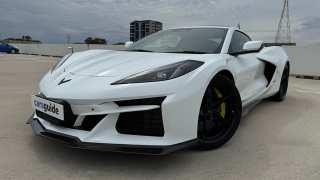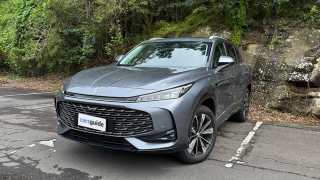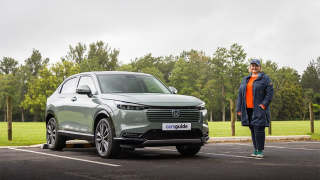
Hydrogen better than electric for Aussie cars

Despite the rush to put electric vehicles on the road, including Benz's own electric-powered Smart and A-Class cars, Dr Herbert Kohler says a hydrogen fuel cell is still the smartest solution in coal-power dependent countries such as Australia.
To drive home the point - and encourage the government to look at infrastructure for alternative fuel vehicles - Mercedes has included Australia in the global world tour of the company's B-Class hydrogen fuel-cell vehicle. The Australian leg will run through Sydney, Canberra, Melboure and Adelaide before crossing the Nullarbor to Perth.
"Having electric energy from coal is not as pure as maybe we can do hydrogen out of water power or natural gas or something like that," Prof. Kohler says. "It is much more attractive from the CO2 side to do that than to do electricity out of brown coal."
"There are two possibilities to go for - one is a battery, the other is hydrogen As a local zero-emissions solution other technologies cannot compete. "Our simulations show there is a higher potential for the fuel cell than for a battery-electric vehicle," he says.
If we look purely at the material costs ... 70 per cent of the cost of batteries is in materials cost ... we see there is a tendency for fuel cells being cheaper," he says.
Prof. Kohler adds that even then the limited range of batteries compared to fuel cells - 100km against 400km - means it is likely both technologies will exist in parallel.
"It is a question of application ... in Iceland (where power is generated from hydroelectricity), the electric car is a smart choice in cities ... there will be different solutions in different cities, different countries and with different governments. As a worldwide supplier, it will be too high risk not to be involved in both technologies."
He also notes that the range of battery-powered vehicles is unlikely to be dramatically extended. "No one should dream this will be an ongoing process. We, with the support of scientiests worldwide, can see what kind of additional storage capacity we can imagine - maybe 20 per cent or 30 per cent, but not 100 per cent or 200 per cent."
Dr Kohler says the F-Cell world tour is intended to show that hydrogen technology is mature and to encourage governments and suppliers to start thinking about the infrastructure needed to support such vehicles.
The B-Class car will be tailed on its 30,000km journey by a Linde tanker carrying the hydrogen needed to refuel the vehicle. He adds the public and government reception to an earlier trial of hydrogen-powered buses in Perth also encouraged Mercedes to come Down Under.
"We had a very good experience with Australia with the bus in Perth with the hydrogen application ... we had marvellous support from the government in Perth, they were very much engaged with the technology."










Comments